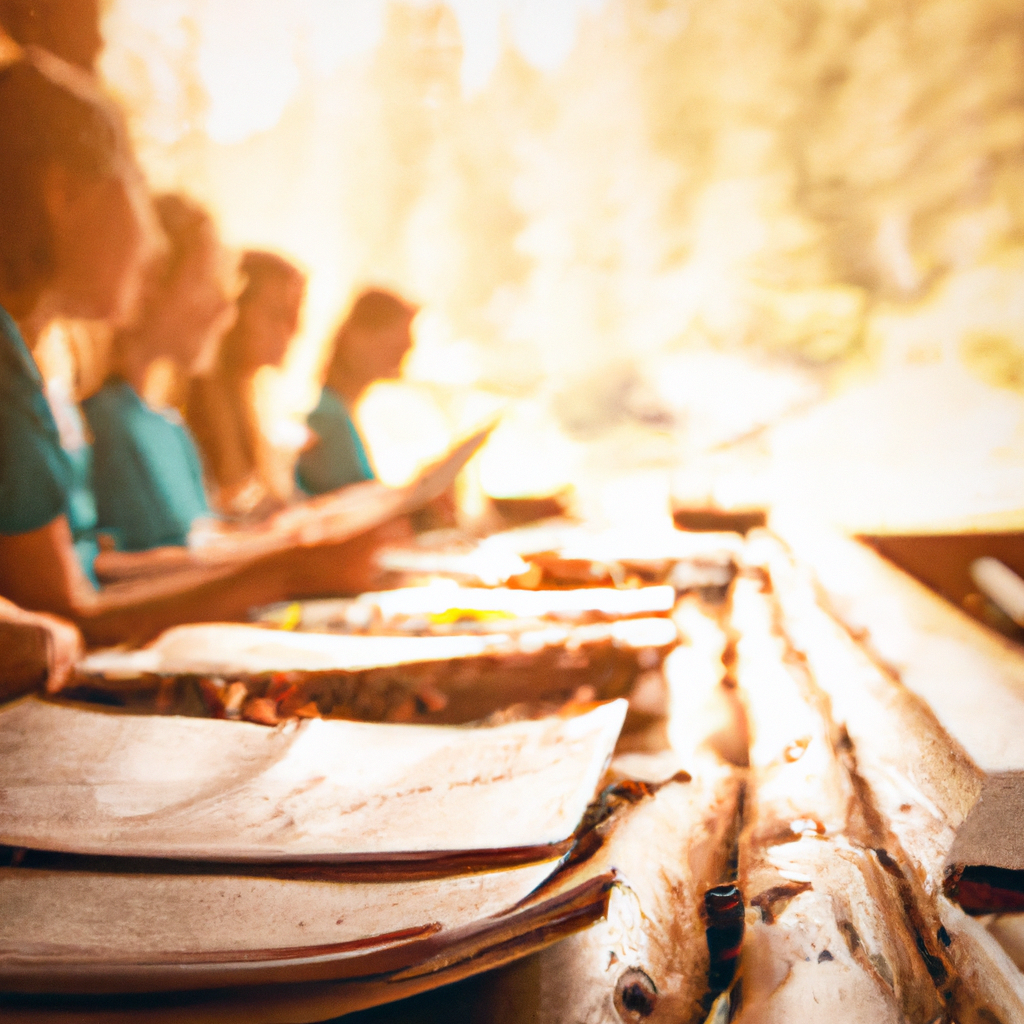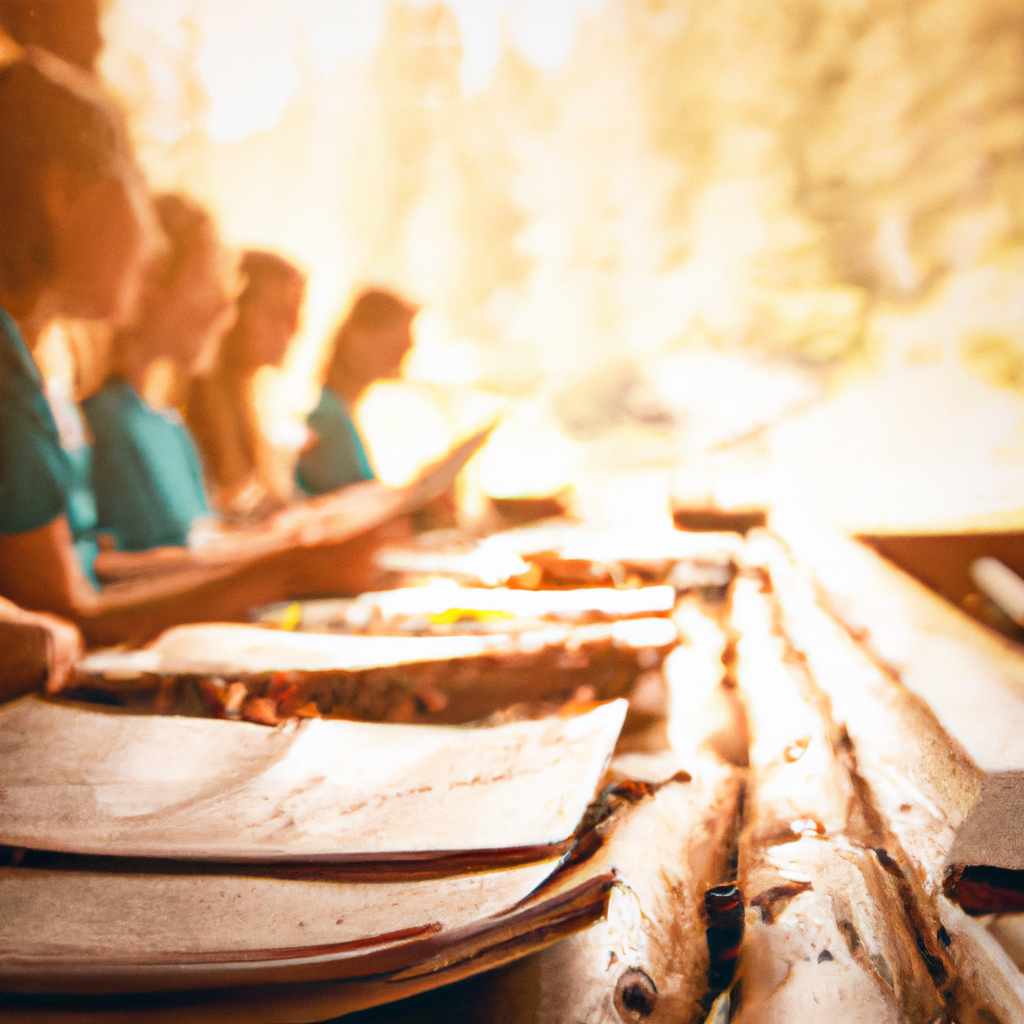When you embark on a camping adventure, it’s not just about immersing yourself in nature; it’s also about being a responsible steward of the environment. In order to preserve the beauty and integrity of the natural habitat, it is essential to minimize our impact as campers. By following a few simple guidelines and adopting a mindful approach, you can ensure that your camping experience remains harmonious with the delicate ecosystems that surround you.

Choosing a Campsite
Researching Campgrounds and Parks
When choosing a campsite, it’s important to do your research beforehand. Look for campgrounds and parks that have a good reputation for preserving the natural environment. Read reviews and ask other campers about their experiences. Look for facilities and amenities that align with your needs but also consider the impact on the surrounding habitat. Choose a campsite that has a balance between accessibility and minimal impact on the environment.
Choosing Established Campsites
Opting for established campsites is a responsible choice that helps minimize the impact on the natural habitat. These campsites usually have designated areas for tents, fire rings, and parking. By choosing these established campsites, you can avoid damaging vegetation and disturbing fragile areas that may be sensitive to human activities. Plus, established campsites often have existing facilities such as restrooms and garbage bins, making it easier to follow Leave No Trace principles.
Camping at Least 200 Feet away from Water Sources
When setting up your campsite, it’s crucial to choose a location that is at least 200 feet away from water sources such as lakes, rivers, and streams. This not only helps protect the water quality but also minimizes the disturbance to aquatic ecosystems and wildlife that rely on these water sources. By camping further away, you can ensure that your presence does not interrupt their natural habitat and behaviors.
Avoiding Fragile Areas
While exploring potential campsites, be mindful of fragile areas such as wetlands, meadows, or areas with delicate flora and fauna. These fragile areas are susceptible to damage, and even a single step can have long-lasting effects. It’s essential to avoid these areas and stick to established trails and campsites. By respecting and protecting these fragile areas, you contribute to the preservation of the natural habitat.
Setting Up Your Campsite
Using Existing Fire Rings and Campsites
When setting up your campsite, it’s important to utilize existing fire rings and campsites whenever possible. These designated spots have already experienced some impact and are designed to minimize further damage to vegetation and soil. By using these pre-established areas, you can reduce your ecological footprint and ensure that your campfire and activities are contained within an appropriate space.
Avoiding Damage to Vegetation
To minimize your impact on the natural habitat, it’s crucial to avoid damaging vegetation when setting up your campsite. Avoid stepping on plants and grasses, and try to choose barren ground or durable surfaces such as compacted soil or rock for your tent. If you need to clear any small debris or rocks for comfort, make sure to put them back in their place before you leave. By being mindful of the vegetation around you, you can help preserve the natural beauty of the area for future campers.
Proper Waste Disposal
Proper waste disposal is a key component of leaving no trace while camping. Make sure to bring sturdy garbage bags or containers to store your trash. Never leave any litter behind, as it not only spoils the experience for others but also poses a threat to wildlife. Dispose of your waste in designated garbage bins or take it with you if there are no facilities available. Leaving your campsite cleaner than you found it is a great way to show respect for the natural habitat and fellow campers.

Minimizing Your Impact
Keeping Noise to a Minimum
When enjoying your camping experience, try to keep noise levels to a minimum. Sounds can carry easily in natural environments, and loud noises can disturb wildlife and disrupt their behaviors. By being mindful of your conversations, music, and other activities, you can ensure that the tranquility of the natural habitat is preserved. Respect the peace and serenity of the surroundings, and other campers will also appreciate the peaceful atmosphere.
Minimizing Campfire Impact
Campfires can be a delightful part of camping, but it’s crucial to be responsible when building and maintaining them. Choose existing fire rings whenever possible and keep the fire small and manageable. Use dead and downed wood rather than live trees, which play a vital role in the ecosystem. Once you’re done with the fire, make sure to extinguish it completely with water, stirring the ashes to ensure there are no embers left. Leaving no trace of your campfire ensures the safety of the environment and the next campers.
Respecting Wildlife
One of the joys of camping is being in close proximity to wildlife. It’s important to remember that we are visitors in their natural habitat and must respect their space. Observe wildlife from a distance and never attempt to feed or approach them. Not only can this disrupt their natural behaviors, but it can also be dangerous for both humans and animals. Keep food securely stored to prevent attracting wildlife to your campsite. By respecting the natural habitat and its inhabitants, you help maintain the delicate balance of the ecosystem.
Leave No Trace Principles
Plan Ahead and Prepare
Planning ahead and preparing adequately for your camping trip is crucial in minimizing your impact. Research the area, understand the rules and regulations, and pack all the necessary equipment and supplies. By being well-prepared, you can make informed decisions and ensure a smoother camping experience while minimizing your impact on the natural habitat.
Travel and Camp on Durable Surfaces
When exploring and setting up your campsite, stick to durable surfaces such as established trails, rock, or compacted soil. Avoid trampling vegetation and fragile areas, as they can take a long time to recover from human impact. By camping on durable surfaces, you reduce the chances of damaging the natural habitat and help preserve its integrity.
Dispose of Waste Properly
Proper waste disposal is vital in leaving no trace while camping. Pack out all your trash and dispose of it in designated garbage bins. If there are no facilities available, carry your waste with you until you find a suitable place to properly dispose of it. Avoid leaving any litter behind, as it can harm wildlife and disrupt the natural habitat.
Leave What You Find
While exploring the natural environment, it’s essential to leave everything as you found it. Avoid taking souvenirs or disturbing rocks, plants, or other elements of nature. By leaving everything untouched, you preserve the natural beauty of the area for others to enjoy and maintain the balance of the ecosystem.
Minimize Campfire Impact
Campfires can leave a lasting impact, so it’s crucial to minimize their impact on the environment. Use established fire rings when available and keep your fire small and manageable. Choose dead and downed wood rather than live trees, which are crucial for the natural habitat. Extinguish your fire completely before leaving, ensuring there are no embers left. By minimizing campfire impact, you contribute to the preservation of the natural habitat.
Respect Wildlife
Respecting wildlife is a fundamental principle of leaving no trace. Observe animals from a safe distance and avoid feeding or approaching them. Keeping food securely stored prevents attracting wildlife to your campsite, minimizing the disturbances to their natural behaviors. By respecting wildlife, you help maintain the delicate balance of the ecosystem.
Be Considerate of Other Visitors
Being considerate of other visitors is essential for a harmonious camping experience. Respect quiet hours and keep noise levels to a minimum. Be mindful of your actions and how they may impact other campers’ enjoyment of the natural habitat. By fostering a sense of community and respect, everyone can have a memorable and responsible camping experience.
Choosing the Right Equipment
Using Lightweight and Compact Gear
Opting for lightweight and compact gear not only makes your camping experience more enjoyable but also helps minimize your impact on the natural environment. Lighter gear reduces the energy and resources required to transport it, resulting in a lower carbon footprint. Compact equipment takes up less space, allowing for efficient packing and reducing the need for excessive resources during transportation.
Avoiding Disposable Items
Disposable items may seem convenient, but they contribute to waste generation and harm the environment. Instead of opting for single-use products, choose durable alternatives that can be reused multiple times. For example, bring reusable dishes and cutlery instead of disposable ones. By avoiding disposable items, you reduce waste and help protect the natural habitat.
Choosing Biodegradable Products
When selecting camping products such as soap, sunscreen, and insect repellent, consider choosing biodegradable options. These products break down naturally over time, minimizing their impact on the environment. Look for eco-friendly and biodegradable labels when purchasing such items to ensure you are making a sustainable choice for the natural habitat.
Participating in Conservation Efforts
Joining Volunteer Programs
One of the ways to actively contribute to the preservation of the natural habitat is by joining volunteer programs. Many organizations and parks offer volunteering opportunities where you can participate in habitat restoration, trail maintenance, or other conservation efforts. By actively engaging in these programs, you make a direct positive impact on the environment and contribute to its long-term health.
Supporting Local Conservation Organizations
Supporting local conservation organizations is another way to contribute to the preservation of the natural habitat. Donate to these organizations, participate in fundraising events, or volunteer your time and expertise. By supporting conservation efforts financially or through volunteer work, you help ensure the continued protection of the natural environment for future generations to enjoy.
Educating Yourself and Others
Learning About the Local Ecosystem
Educating yourself about the local ecosystem is an important step towards minimizing your impact while camping. Learn about the native flora and fauna, their habitats, and any sensitive areas that require special attention. Understand the rules and regulations specific to the area you plan to camp in. By being knowledgeable about the local ecosystem, you can make informed decisions and take appropriate measures to protect it.
Educating Fellow Campers
As an avid camper, you have the opportunity to educate fellow campers about the importance of minimizing impact on the natural habitat. Share your knowledge and experiences with others, encouraging responsible camping practices. Lead by example and showcase how leaving no trace can enhance the camping experience while preserving the natural beauty for future generations. By educating others, you contribute to a collective effort to protect and respect the natural environment.
Respecting Laws and Regulations
Follow Camping Regulations
When camping, it is crucial to respect and follow all camping regulations set forth by the park or campground authorities. These regulations are put in place to protect the natural habitat, ensure visitor safety, and maintain a harmonious camping experience for everyone. Familiarize yourself with the rules before your trip and adhere to them throughout your stay. By respecting camping regulations, you contribute to the overall conservation efforts of the area.
Observe Fire Restrictions
Fire restrictions can be imposed during dry seasons or in areas prone to wildfires. It is imperative to observe and comply with these restrictions to prevent accidental fires and protect the natural habitat. If fire restrictions are in place, consider alternative methods of cooking and heating, such as using camping stoves. By respecting fire restrictions, you play a vital role in maintaining the ecological balance and preventing potential disasters.
Check for Seasonal Closures
Some areas may have seasonal closures to protect sensitive habitats or wildlife during specific times of the year. It is essential to check for any seasonal closures and respect them to avoid disturbing critical breeding or nesting periods for plants and animals. Be aware of the closures and plan your camping trips accordingly to ensure minimal impact on the natural habitat.
Respect Protected or Sensitive Areas
Certain areas within campgrounds or parks may be designated as protected or sensitive due to their ecological importance. These areas may have specific restrictions or limited access to protect fragile ecosystems or endangered species. Respect these designations and avoid trespassing or disturbing these protected areas. By respecting and protecting these spaces, you contribute to the overall preservation of the natural habitat.
By following these guidelines and adopting a responsible approach to camping, you can minimize your impact on the natural habitat. Leave no trace, educate others, and contribute to conservation efforts to ensure that future generations can continue to enjoy the beauty of the great outdoors. Happy camping, and let us cherish and protect the natural environment!

